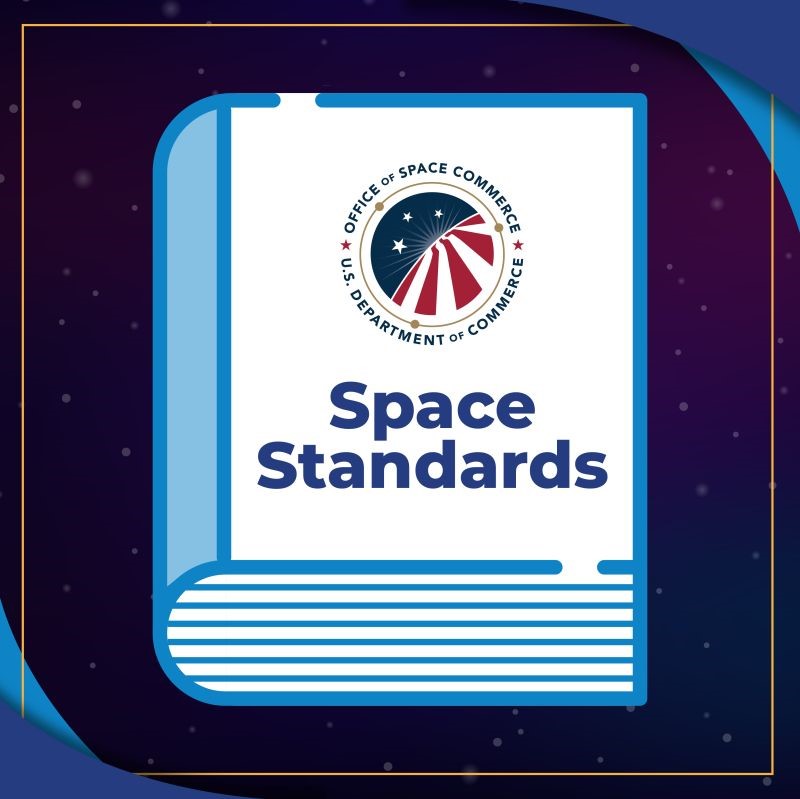OSC Seeks Comment on Draft ISO Space Traffic Coordination Standard

To foster the economic growth and technological advancement of the U.S. commercial space industry, the Office of Space Commerce (OSC) participates in the development and promotion of technical standards by standards development organizations as well as coordination groups led by government agencies and trade organizations. OSC is particularly involved in standards related to space situational awareness (SSA) data sharing and coordination, which is essential to the Traffic Coordination System for Space (TraCSS).
ISO/CD3 9490 is a committee draft of an international standard for space traffic coordination. The draft is under development by ISO Technical Committee 20 (Aircraft and Space Vehicles), Subcommittee 14 (Space Systems and Operations), Working Group 3 (Space Operations).
The draft is currently open for comment, with the Office of Space Commerce soliciting stakeholder input for Subcommittee 14 review of the draft standard.
Request for Comment:
Comments on the draft may be submitted via email, using the provided template (below) and with the email header “ISO/CD3 9490 Comment,” to dianne.poster@noaa.gov. Comments are requested no later than 5:00 pm (EDT) Thursday, May 15, 2025.
While certain sections have been highlighted for review (below), feedback is welcome on any section of the document.
Associated Documents:
- Third Committee Draft (CD) for Consultation, ISO/CD3 9490, Space Systems – Space Traffic Coordination (PDF)
- Stakeholder Comment Template (DOC)
Background:
ISO/CD3 9490 specifies requirements for the coordination of space traffic, which support the aim to promote the safe and efficient use of space. This standard levies requirements of a Space Traffic Coordination (STC) system so that it will provide high availability, timely, comprehensive and sufficiently accurate services.
This standard does not address issues of national sovereignty or inherently governmental functions implied by the term Space Traffic Management (STM). The exact nature of and requirement for the bidirectional STC-to-STM feed depends upon applicable STM policies and regulations.
Among the contents of this draft standard are:
- Protocols for collection and exchange of data relevant to space safety:
- Protocols for creating, populating and operating an open architecture data repository.
- Open data exchange:
- Ingestion of data into a data lake as part of an open architecture data repository;
- Data integrity measures and standards to ensure quality from diverse sources;
- SSA data derives from multiple and diverse sources;
- Measures to safeguard proprietary or sensitive data;
- Owner-operator notification of flight plans and planned maneuvers and sharing of orbital location.
- Data (ephemerides):
- Timely and actionable warnings; sharing of catalogue data, to predict close approaches;
- Interoperable formats to enable reliable messaging STCM inputs and results, timely and actionable.
- Warnings, referencing extant CCSDS standards where applicable:
- Exchange of catalogue data to predict close approaches and assess options for operator collision avoidance maneuver plans;
- Formats to enable development of applications to leverage data and perform automated processes for collision avoidance;
- Encryption of satellite telemetry, tracking & command, command and control links, and data protection measures for ground site ops;
- Coordination for satellites transiting LC radial shells.
Sections of Note:
OSC highlights the following sections in particular for stakeholder review and feedback:
- Section 6: Operational Transparency
- Section 7: Manoeuvre Recommendations and Prioritization during Collision Risk Events
- 7.2 (spacecraft manuverability categories)
- 7.4 (spacecraft maneuver prioritizations)
- Section 8: Responsibilities of STC System Participants
- 8.2.5 (operator contact information)
- 8.2.6 (provision of space data)
- 8.2.7 (data exchange)
- 8.3 (responsibilities of launch, mission extension, and ADR providers)